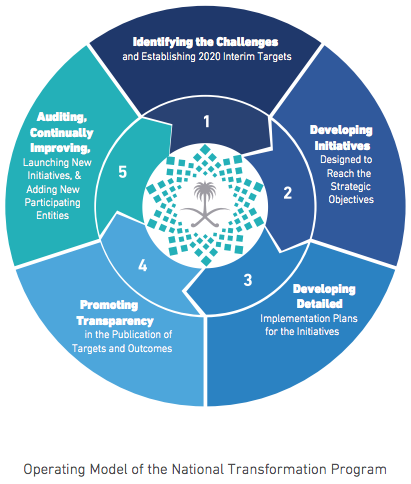Saudi Arabia’s new National Project Management Office (NPMO) is something you will hear a lot about in the coming years.
The Kingdom has tasked U.S.-based Bechtel Corp to oversee its state infrastructure projects, known in Arabic as “Mashroat,” and ensure that projects are run at low costs and as efficiently as possible. The deal was awarded to Bechtel to create and run this new office, the NPMO, which will create a National Integrated Infrastructure Strategy Plan for the government.
“The appointment is a crucial one because everything that Saudi Arabia wants to do with big infrastructure projects will be governed by this new body, and until the new body is fully established little will move forward,” Colin Foreman writes in MEED.com. “As the NPMO is set up, other ministries and government agencies can start proceeding with their own project plans, and that should at long last mean new work opportunities for a construction sector that has been starved of work in recent years.”
Bechtel has 70 years of history in Saudi Arabia, and has worked on the Kingdom’s airports, industrial cities, and major transportation lines including the under-construction $20 billion Riyadh metro.
A source familiar with the project told SUSTG that it is the first, major project awarded under Saudi Arabia’s National Transformation Program (NPT).
The Saudi cabinet created the NPMO office last year as part of Vision 2030, and Bechtel was contracted to support setting up and operating the National Project Management Organization in Saudi Arabia on February 20th. Firms submitted bids for the deal in July last year.

Saudi Arabia’s National Transformation Program operating model.
“Bechtel will mobilize experts from across the company to develop world-class systems and processes for the NPMO, and to share these new tools across all Saudi government ministries and entities,” said Georges Chahine, a Program Director at Bechtel. “We will train Saudi nationals and implement a knowledge management system.”
And now, the San Francisco-headquartered company is hiring. Bechtel lists a new Senior Economist position, based in Riyadh, to work on creating the National Integrated Infrastructure Strategy Plan.
Officials told Reuters in late December that the government had paid 100 billion riyals to the private sector over the previous two months, and pledged to pay future debts within 60 days of receiving the invoice. At least $13.3 billion of government projects are at risk of being cancelled in Saudi Arabia this year because of fiscal pressures and shifting government priorities, according to a study by consultants Faithful+Gould.
Contractors used to quick approval of projects will now have to be patient. The Vision’s governance model “promotes efficient planning within government agencies and boosts coordination among them in order to achieve common national goals. It also guarantees speedy completion of projects and initiatives and achieves sustainable action and impact through regular implementation reviews and performance evaluations,” according to the National Transformation Program. In other words, Saudi Arabia’s new NPMO will ensure that these projects are not wasteful or unnecessary, and are economically viable – something that will take time.
“While this may disappoint companies looking for quick wins in the short term, for the longer term it will mean a steady pipeline of projects that the construction industry can rely on,” writes Foreman.









